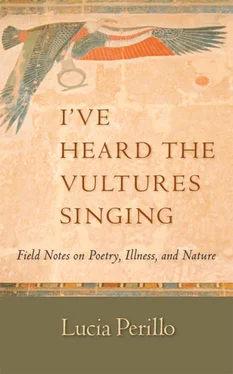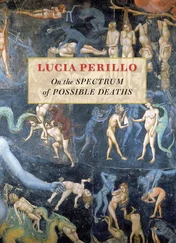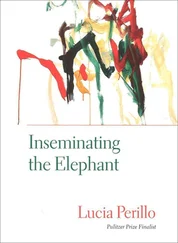This is where art and life part company. Thanks to hightech surgical excisions and pharmaceutical assaults on the body, the form that tragedy now takes in life is often a slowish downward slide, which doesn’t suit the demands of literature because it is too big and long. (Thomas Hardy found this out when he wrote his novel Jude the Obscure —with its long, relentlessly plunging trajectory — and was savaged by critics, to the point that the book was burned. He then turned to writing lyric poems, their brevity giving him the freedom to air his laments.)
· · · · ·
I have plenty of friends who will not watch movies if their plotlines plunge. As a culture we have little use for lamentation and instead choose laughter for our cathartic agent. So why, then, does tragedy make up the bulk of the stories that we lug with us into the future? We remember Macbeth and Hamlet and King Lear better than we remember all of Shakespeare’s happy lovers. The tormented are more indelible.
“It is not the worst,” says a character in Lear , “so long as we can say it is the worst.” This sounds reasonable enough until you remember oh Jimke the pain the pain and the unspeakable desire to chop off the legs. Shakespeare hadn’t reckoned on modern medicine’s ability to attenuate disease, nor had his almost-contemporary Michel de Montaigne, who dispensed with the problem of pain by stating that if it was intense, it would be over soon, or, if it wasn’t intense, it could be withstood. Pain that was intense and long could be found in only the goriest myths. If you want to hear about that kind of pain, your man is Prometheus.
· · · · ·
Though I never studied Greek or Latin, I do have on my shelf a small collection of ancient tragedies. Other people must have been eager to be rid of them, seeing as these books came from the kind of used-book sales where, if you arrive at their tail ends, you are charged by the number of brown paper shopping bags you fill. These were the books that nobody wanted to read, or could bear to read, and I bought them in my youth because I was eager to smarten myself up, though I could not pronounce the name Aeschylus.
I knew who Prometheus was, though — the god who got chained in a crag so his liver could be pecked out by eagles. The story is a profound one for anyone who lives in the grip of a nonlethal illness, as his liver mysteriously regenerates each night so the attack can be repeated—“each changing hour will bring successive pain / to rack / your body”—and since he is immortal, he can’t just die and escape his pains.
Zeus has ordered this perpetual torment because Prometheus stole fire from the other gods and gave it to men. But that was not his worst offense, he who could see the future, his name meaning “wise before the event.” He also made it possible that humans no longer foresaw their deaths. Instead, Prometheus had “planted firmly in their hearts blind hopefulness.”
The worst thing about disease is how it undoes Prometheus’s good deed and gives the patient a flash glimpse at his or her possible death — a flash that’s never exactly accurate, of course, because we all ride the plotlines of our singular, inevitable physical demise. Disease is notoriously inconsistent. And yet the flash is still horrifying, frightening beyond belief, because it might contain some truth after all.
Aeschylus’s Prometheus Bound describes the god’s crucifixion, the result of his unwillingness to say he’s sorry for his deeds. The poem about Prometheus is of the same approximate vintage as the poem about Job, though Prometheus is the anti-Job, steadfast in his refusal to give up lamenting his fate. Sarcastically, he tells his tormentors: “Oh, it is easy for the one who stands outside / The prison-wall of pain to exhort and teach the one / Who suffers.” Unlike Job, who starts with this kind of sarcasm and is coaxed — then divinely commanded — away from it, Prometheus never gives it up.
The catharsis that’s supposed to come from watching a tragic drama is the final revelation that its victim is not us after all. We walk out of the theater and discover that we are not pinioned on the rock; our children, in fact, are home with the babysitter. This is the problem tragic art presents to those who live at the center of tragedy, or at least what could be called tragedy from the outward view. The center-dwellers have too much in common with the protagonist.
But suffering is also transformed into something else when you’re the one looking outward from inside of it — I shouldn’t have even called it suffering. No one lives at the center of the tragedy because at the center there is no tragedy, the way a fish in a bowl doesn’t see the bowl, instead it sees the distorted world beyond. From the outside, it may look like my body has become more still, but it’s a stillness that’s also busy. Busy with the complex logistics of getting from place A to B, and busy also with its inner life, the inner life that grows so large it consumes the body. In my case, I hope the sufferer has turned into a sentinel, trying to figure out which bird gave that shrill cry outside the window, the cry that sounded like it could have come from a red-tailed hawk.
And so with Prometheus, who keeps his eye on the landscape even while the eagles shred him:
Now it is happening: threat gives place to performance.
The earth rocks; thunder, echoing from the depth,
Roars in answer; fiery lightnings twist and flash.
Dust dances in a whirling fountain;
Blasts of the four winds skirmish together,
Set themselves in array for battle;
Sky and sea rage indistinguishably.
The cataclysm advances visibly upon me,
Sent by Zeus to make me afraid.
O Earth, my holy mother,
O sky, where sun and moon
Give light to all in turn,
You see how I am wronged!
Then the stage set falls down with a crash, and the people in the audience reenter the world of their own concerns, consoled because, no matter what their troubles, they’ve just seen someone whose fate is worse. Or consoled because they’re now free to go home and wail, having just seen someone who’s not afraid to keep lamenting, even when faced with an atmospheric showdown.
Job, on the other hand, shuts up at last when God unleashes the Leviathan and nature goes crazy. I like to think my own song oscillates between these two polarities of complaint: Bitch bitch. Tweet tweet .
A friend recently asked me: “Have you ever walked by a shop-window in a new hat you’ve just bought”—this was a man’s hat he was talking about, probably purchased from the haberdashery downtown that’s been in business thirty years despite the fact that I’ve never seen anyone go in or out, a shop patronized by ghosts only, ghosts plus my bald friend—“and you study yourself for a minute before you devilishly give the hat a tilt?”
“Oh no,” was my answer, “I never stop to look. My advice would be don’t ever stop to look.”
For a while I taught remedial English at a college attached to a Benedictine monastery. Though I didn’t understand how anyone could find happiness in monastic life (bad food, no sex), my religious colleagues inspired my envy for one reason: they could wear robes to work. Long black robes under which they wore jeans or old sweatpants or even their pajamas. In these garments they vanished the way the Star Trek Enterprise became invisible once the technology called the cloaking device was engaged.
Out on the streets, where the robes had the opposite effect and made them ultra-visible, they opted for the camouflage of jeans and sweaters. The only sign of their being monks would be the expensive sandals they wore year-round.
Читать дальше











![Various - Birds and Nature, Vol. 12 No. 5 [December 1902]](/books/745517/various-birds-and-nature-vol-12-no-5-december-thumb.webp)
![Various - Birds and Nature Vol. 11 No. 2 [February 1902]](/books/745533/various-birds-and-nature-vol-11-no-2-february-1-thumb.webp)